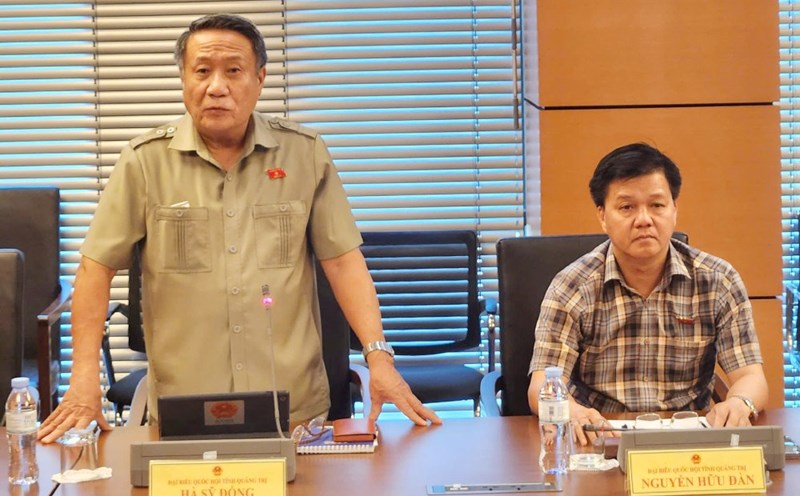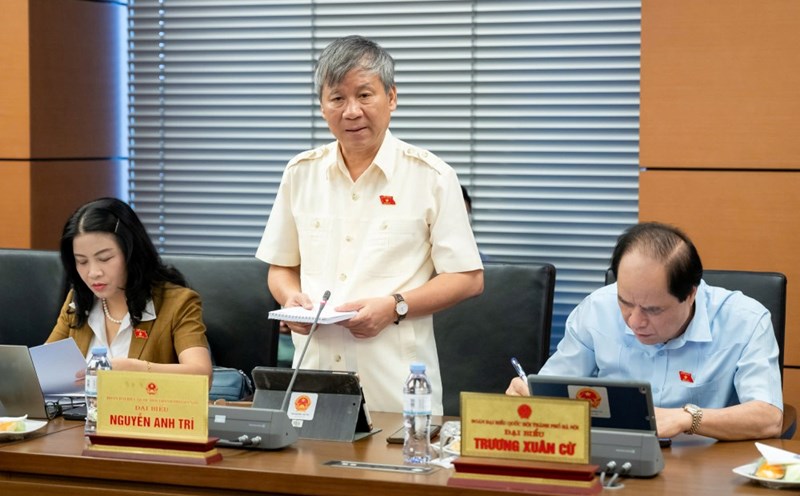On May 23, the National Assembly discussed in groups the implementation of the socio-economic development plan and the state budget in the first months of 2025.
Delegate Hoang Van Cuong (Hanoi Delegation) emphasized that economic growth in the remaining time of 2025 is a short-term goal, so it is impossible to find new drivers but must rely on existing drivers.
The delegate proposed 7 key and urgent solutions to achieve the economic growth target of at least 8% in 2025, including solutions to promote the development of the real estate market, especially increasing investment in social housing development.
To promote strong growth in 2025, the state must not only focus on public investment, but also encourage private investment.
"Regarding the principle of economic growth in capital and labor, what attracts a lot of capital will grow very quickly", the delegate analyzed and pointed out that if real estate continues to pour in a lot of capital, the economy will grow very quickly.
According to the delegate, China in the period of double-digit growth was due to real estate, called hot growth. In the period of 2025-2026, Vietnam should accept hot growth through real estate development.
The delegate explained that the real estate market in our country is currently in a period of lack of supply due to problems from projects that are eligible for construction. The market is in great demand, so real estate prices are increasing due to scarcity of supply, not a "bubble".
If we expand the development of the real estate market, it will balance supply, not afraid of hot growth, excess goods, and inventories like in China. Therefore, we need to encourage real estate growth during this period, said the delegate.
According to statistics from the Ministry of Finance, the whole country has 2,212 projects under implementation that have had to stop due to problems with a total investment of nearly 6 million billion VND, using nearly 350 thousand hectares of land.
Currently, Resolution No. 170/2024/QH15 has allowed to remove obstacles for real estate projects in Ho Chi Minh City, Da Nang, Khanh Hoa, but has not allowed widespread application in other localities.
Therefore, the delegate suggested that the mechanism to handle these problems be widely applied to real estate projects in other localities to free up this resource. If so, it will contribute greatly to growth.
The delegate also suggested focusing on solving the problem of social housing well according to the Resolution of the National Assembly. This will create truly sustainable growth.
The delegate of the Hanoi Delegation cited a large real estate corporation that shared with him that it was not eligible to borrow capital for social housing because it had borrowed for other areas, and there was not enough capital to balance to borrow capital for social housing.
"To serve the growth target, for approved social housing, existing investment projects, existing customers... mobilizing loans for social housing is not included in the balance of general outstanding loans of those businesses and organizations. Only then can we have capital to develop social housing, the delegate emphasized.
Speaking, delegate Nguyen Thanh Sang (HCMC Delegation) also said that it is necessary to quickly clear the "frozen" prime lands.
According to the delegate, it is necessary to remove obstacles in projects and speed up the recovery of assets from cases that have been brought to trial, with great value, and leaving them behind for many years is a huge waste.











